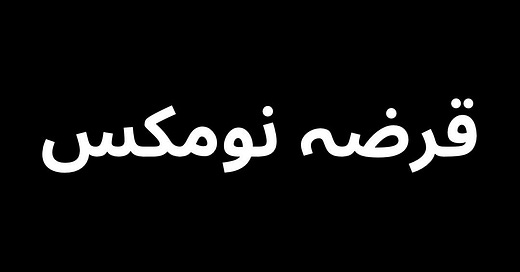The new Finance Minister talks a good talk. No one's buying it.
Muhammad Aurangzeb is trying his best. Is it enough?
You know the excitement of those early months, when you’ve just broken up with your toxic ex (Ishaq Dar), and everything they do seems perfect in comparison? Your infatuated mind is convinced—this time, it’s for real. Enter Muhammad Aurangzeb, the new Finance Minister who has been saying and doing all the right things.
In Washington DC last week, Aurangzeb outlined the “aggressive reforms” he plans to undertake, chief among them being broadening the tax net. His tone has certainly caught the attention of the IMF, with the Fund’s head Kristalina Georgieva praising Pakistan earlier this month for their “commitment to continue on this (reform) path”. So far, so good, right?
Except if you look into the IMF’s most recent report on Pakistan, it tells quite a different story. It projects our tax revenue for the current year to clock in at 10.6% of GDP, which is abysmal. And then interestingly, it predicts that our tax revenue for the next four years will remain stagnant at 10.7%. So, while the IMF commends us publicly, its research suggests it has little faith in our ability to collect more taxes.
Another important entity that is not (yet) sold on the narrative is China. Aurangzeb is trying his best, calling CPEC a “champion project for Pakistan” while at the same time clarifying that we cannot repay our debt to China unless it invests even more money through CPEC Phase II, in which privately-owned Chinese companies would relocate to Pakistan. Some may describe this as a Ponzi scheme, and to those people I would say—shut up, we’re broke.
What’s clear, however, is that Chinese companies are not buying it. Many of them are indeed shifting production away from China to avoid US sanctions, but they’re not moving to Pakistan. Instead, they’re relocating to countries like Vietnam and Mexico, which are far more plugged in to global supply chains. And as for the Chinese government, which lavished us with billions of dollars in the late 2010s, they won’t even lend us $600 million unless we first clear our dues to Chinese-owned power plants in Pakistan (to be fair, we do owe them $1.8 billion).
What about the others? While in DC, Aurangzeb tried to cozy up to the rating agencies, telling them that we’ve changed and we’re all about fiscal discipline. But they’re not convinced, at least for now. A report from our Economic Affairs Division shows that there is a gap of about $6 billion in our finances this year that we had hoped to borrow from international markets, but were unable to because our debt continues to be rated as junk (CCC).
And finally, the most relevant constituency—the people of Pakistan. Are they buying into his message? Well, firstly, many of them hate Aurangzeb for being the civilian face of a military-run government. Second, good luck convincing people who have dealt with two years of 30% inflation that further increases in electricity and gas prices (all but inevitable in our new IMF program) are necessary for economic stability.
It's quite a quagmire Aurangzeb finds himself in. Still, the thought lingers, could he prove us all wrong? But the truth is, it’s not really in his hands. Much like in 1707, the real power lies elsewhere—with the khaki East India Company.
What I’m reading this week:
The Meaning of Erdogan’s Defeat in Istanbul (Merve Pehlivan, New Lines Magazine)
Did Development Economics lose its moral compass? (Jishnu Das, LinkedIn)



